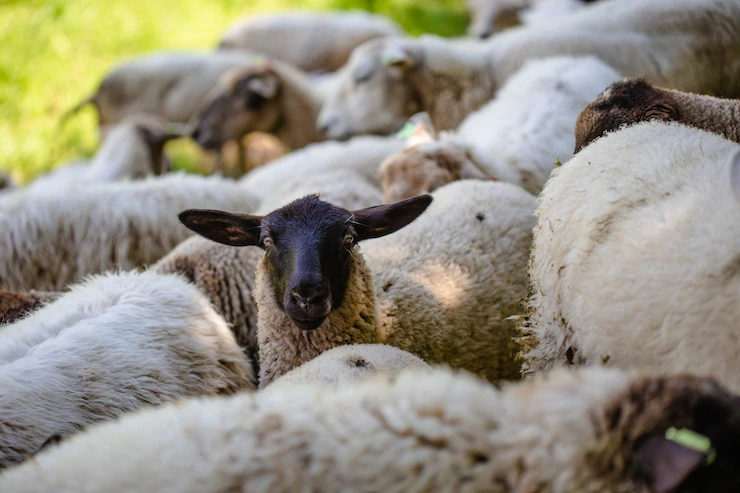When engaging in sheep farming in South Africa, it’s important to be aware of various infections and diseases that can affect sheep. Vigilance, preventative measures, and proper management practices are crucial for maintaining the health of your flock. Here are some infections and diseases to watch out for:
- Sheep Scab:
Caused by the mite Psoroptes ovis, sheep scab is a highly contagious disease that leads to intense itching, hair loss, and skin lesions. It can spread rapidly within a flock. - Footrot:
Footrot is a bacterial infection primarily caused by Dichelobacter nodosus. It affects the hooves, leading to lameness, swelling, and a foul odor. It can result in significant economic losses if not managed effectively. - Contagious Ecthyma (Orf):
This viral infection affects the skin around the mouth, lips, and udder. It causes painful, blister-like lesions that can lead to secondary infections. Orf is zoonotic, meaning it can be transmitted to humans. - Pulpy Kidney Disease:
Clostridium perfringens type D is the bacterium responsible for this condition. It primarily affects lambs, causing sudden death due to toxin release, leading to damage to the kidneys and other organs. - Enterotoxemia (Overeating Disease):
Also caused by Clostridium perfringens type D, enterotoxemia is more common in lambs and can result in acute enteritis, abdominal bloating, and sudden death. - Anthrax:
Although relatively rare, anthrax is a severe bacterial disease caused by Bacillus anthracis. It affects various animal species, including sheep. It is zoonotic and poses a significant risk to humans. It is essential to report any suspected cases immediately. - Brucellosis:
Brucella melitensis is the bacterium responsible for brucellosis in sheep. It primarily affects the reproductive organs, causing abortions, infertility, and reduced lambing rates. It can also be transmitted to humans. - Bovine Tuberculosis (BTB):
BTB, caused by Mycobacterium bovis, affects various domestic and wild animals, including sheep. It is a chronic disease that primarily affects the lungs and lymph nodes, leading to weight loss, coughing, and poor production. - Johne’s Disease:
Caused by Mycobacterium avium subspecies paratuberculosis (MAP), Johne’s disease is a chronic bacterial infection that affects the intestines. It results in weight loss, chronic diarrhea, and reduced productivity. - Pasteurellosis: Pasteurella spp. bacteria are responsible for pasteurellosis, a respiratory infection that can lead to pneumonia, nasal discharge, coughing, and high mortality rates in lambs and sheep.
To effectively manage these infections and diseases, it’s crucial to work closely with a veterinarian experienced in sheep health. They can provide guidance on preventive measures, vaccination protocols, biosecurity practices, and disease management strategies tailored to your specific farming conditions.
Join 'Farmers Mag' WhatsApp Channel
Get the latest Farming news and tips delivered straight to your WhatsApp
CLICK HERE TO JOIN






